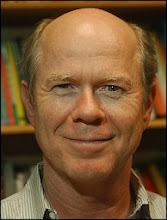New DVD "Unlock your Brain's Potential”
I now have copies at my office of the newly released DVD brochure "Unlock your Brain's Potential". It features two powerful and compelling new case studies regarding autism and addictions.This new release also includes the original video case studies of people who have successfully used neurofeedback for migraines, ADD/ADHD, autism, peak performance and PTSD.
This DVD describes the basics of how and why neurofeedback works and answers some common questions such as:
· "How does this work?"
· "What is it doing to my brain?"
· "What will happen during a session?"
· "How many sessions will I have to do?"
If you would like a free copy of this DVD, you can stop by my office or contact me by phone or email to request that I mail you one.

